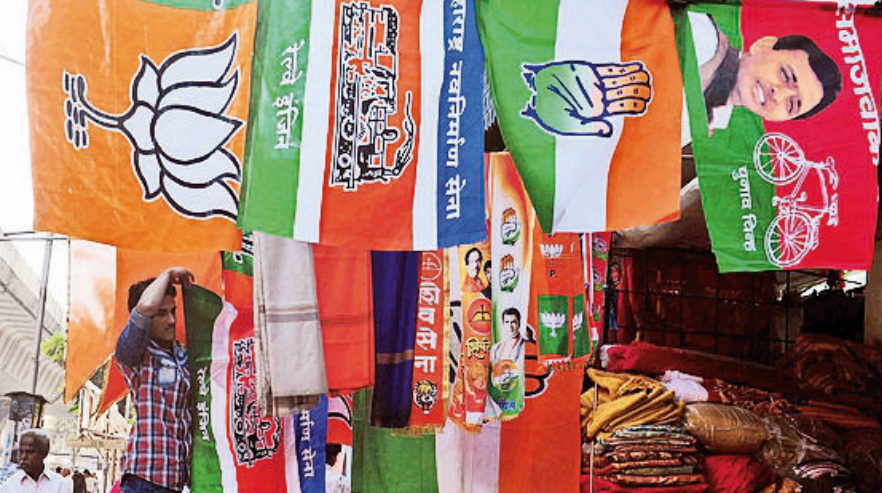As parties are not obliged to declare the details of donors who contribute less than Rs 20,000 in a single tranche, the income from this source is termed unknown.After electoral bonds were introduced in 2018, contributions received through these bonds too were bracketed as unknown sources of income.
Rajasthan assembly polls: Congress promises annual allowance of Rs 10,000 for women heads of families, gas cylinders for Rs 500 to 1.05 crore families
The total income of eight national parties in 2021-22 was Rs 3,289 crore, of which Rs 781 crore was from known donors and Rs 336 crore was from other known sources (sale of assets, membership fees, bank interest, sale of publications, party levy,, etc). Income from unknown sources was Rs 2,172 crore, or 66%.
In 2021-22, BJP had a total income of Rs 1,917 crore, of which Rs 1,161 crore or 61% was from unknown sources (mostly electoral bonds). TMC’s total income was Rs 546 crore, of which Rs 528 crore or 97% was from unknown sources. Congress’s total income was Rs 541 crore, of which Rs 389 crore or 72% came from unknown sources. CPM’s total income of Rs 162 crore included Rs 79 crore or 48% from unknown sources.
Assembly elections 2023: Will 7 guarantees good enough for Ashok Gehlot to retain power in Rajasthan?
According to senior advocate Vijay Hansaria, who collated data from the EC website, the total income from redeeming electoral bonds by political parties between 2017-18 and 2021-22 was: BJP Rs 5,272 crore; Congress Rs 952 crore; AAP Rs 50 crore; TDP Rs 113 crore; YSRCP Rs 330 crore; JD(S) Rs 43 crore; JD(U) Rs 24 crore; RJD Rs 2.5 crore; Shiv Sena Rs 101 crore; NCP Rs 64 crore; BJD Rs 622 crore; DMK Rs 46 crore; AIADMK Rs 6 crore.
Solicitor general Tushar Mehta pointed out that CPM, despite not accepting electoral bonds, had more than 50% of its income from unknown sources since 2017-18.
CPM informed a bench of CJI D Y Chandrachud and Justices Sanjiv Khanna, Bhushan R Gavai, J B Pardiwala & Manoj Misra on Tuesday that though it was in office in Kerala, it had taken a stand not to accept donations through electoral bonds, at much cost to the party.
Petitioner NGO Association of Democratic Reforms, which has challenged the validity of electoral bonds, collated data that showed that total income of national and regional parties between 2004-05 and 2014-15 was Rs 11,367 crore, of which Rs 1,836 crore (16%) came from known sources. Income from other known sources was Rs 1,699 crore or 15%. Income from unknown sources was Rs 7,833 crore, or 69% of the total income of parties.
The total amount of donations above Rs 20,000 declared by the six national parties was Rs 1,405 crore. BJP topped the list by declaring receipt of Rs 918 crore through such donations, which was more than double such donations declared by the Congress during the same period.
Between 2004-05 and 2014-15, 83% of the total income of Congress at Rs 3,323 crore and 65% of the total income of BJP at Rs 2,126 crore came from unknown sources. Among regional parties, Rs 766 crore or 94% of the total income (Rs 819 crore) of Samajwadi Party and Rs 88 crore or 86% of the total income of Shiromani Akali Dal came from unknown sources.
Among national and regional parties, BSP is the only party to have declared receiving zero donations above Rs 20,000 between 2004-05 and 2014-15, thus 100% of the party’s donations came from unknown sources. The income of the party increased from Rs 5 crore in 2004-05 to Rs 112 crore in 2014-15.
